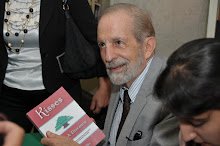Wednesday, May 11, 2011
EDITORS ARE AN UNAPPRECIATED BREED
Some editors are failed writers, but so are most writers. T. S. Eliot
Any writer, if he is to advance in the field, must at some point subject his work to the scrutiny of an editor. This experience can run the gamut from intimidation to exhilaration. Since art appreciation is essentially a subjective exercise, one person's shimmering sea is often another's muddy pond. It happens all the time, and there are many examples of such dissonance in judging literary works. Although it doesn't get near the notoriety that an author receives for a successful work, editing is an art form that is creative in its own right. The ability to look at another's work objectively and give positive guidance is often a thankless exercise—frequently unappreciated both by readers and authors.
Max Perkins was an editor extraordinaire. When he got a job with Scribner's in New York, he decided he wanted to work with younger writers. Unlike most editors of his time, he actively sought out promising new artists, and against his cohorts' advice, signed F. Scott Fitzgerald in 1919. Perkins worked with Fitzgerald to revise The Romantic Egotist, and then lobbied to have it accepted until he wore down his colleagues' resistance. His perseverance was subsequently rewarded with the publication of The Great Gatsby.
Editing is a lot like business management. A manager is charged with putting the company's business objectives ahead of his individual creative ambitions. A good manager will leverage his talents across his group thereby getting much more output than he could produce working alone. That's why the best managers are often those who aren't the most creative contributors. A common mistake made in business is to take top individual performers and make them managers. It is very difficult for those accustomed to originating solutions to subjugate their creative instincts, allowing seemingly less capable individuals to do the interesting work.
An editor doesn't have to be a person with a resume of writing credentials. In fact that might actually be an editing deterrent. Creative writers who edit another's writing are always tempted to recast the work in their own style, thereby robbing authors of their originality. There is, after all, virtually an infinite number of ways of expressing the same thought.
Editing is a tough job, but when done well is a huge boon for the writer.
An editor should tell the author his writing is better than it is. Not a lot better, a little better. T. S. Eliot
Subscribe to:
Post Comments (Atom)





No comments:
Post a Comment